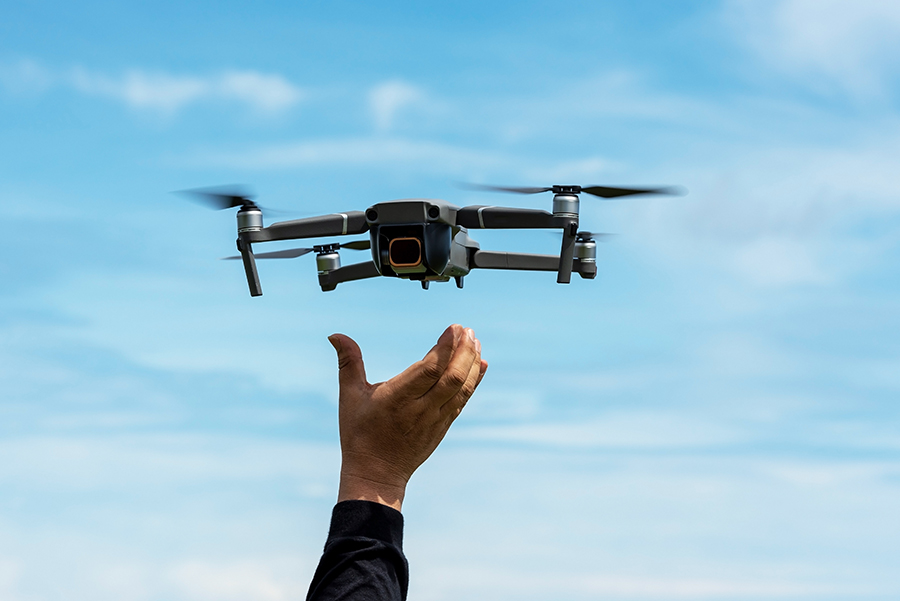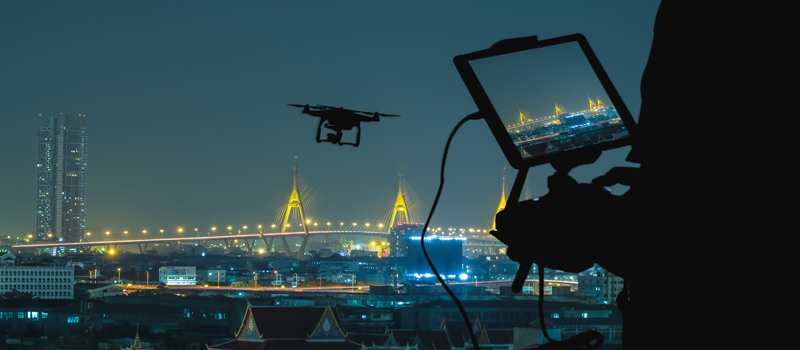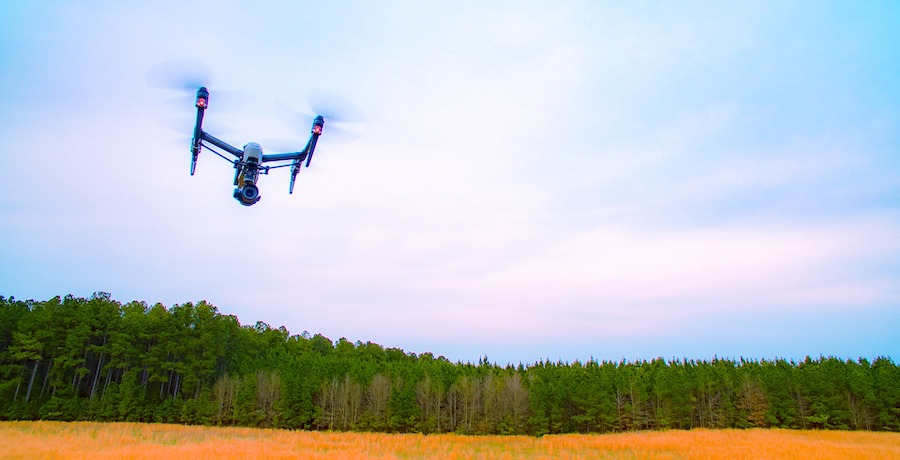Note: This article does not provide legal advice. It’s for informational purposes only.
The conflict between federal and state or local drone laws is something that the drone community has struggled with for the better part of the last decade. There is a lot of confusion as to whether local governments can implement laws that pre-empt the federal drone laws as enforced by the FAA.
The case of Michael Singer vs. the City of Newton is considered a landmark case in this matter, with an outcome that has been favorable to drone pilots. What exactly is the case about and how was it decided? How will this decision influence the future landscape of drone legislation?
Drone laws proposed in Newton
On December 29, 2016, the city of Newton in Massachusetts passed an ordinance that regulated drone operations within the city. The regulations had some inarguably sensible parts, such as preventing the use of drones to pose harm to people or as tools for voyeurism.
However, there were also some parts of the Newton regulations that were questionable, both from legislative and practical perspectives. It is also interesting to note that Massachusetts did not have a state-wide drone policy at that time.
The case filed by Dr. Michael Singer
In January 2017, Newton resident and physician-inventor Dr. Michael Singer filed a lawsuit in the federal district court of Massachusetts against the city of Newton. The primary claim of the lawsuit is that the city ordinance on drone regulation was preempted by federal law.
Singer did not state that the entirety of the city ordinance was preempted. Instead, he cited four specific provisions:
- The requirement that operators register their drones with the city clerk’s office before operation;
- The ban on drone flight below 400 feet over private property without the property owner’s consent;
- The ban on drone flight over public property, at any altitude, without the prior permission of the city of Newton; and
- The ban on the operation of drones at a distance beyond the visual line of sight of the Operator.
Singer raised several issues in connection with these provisions. He argued that not only were these provisions preempted by federal law but that they effectively created a blanket prohibition of drone flight within the city of Newton. It is worth noting that Singer valued the idea of using drones to deliver emergency medical services and that it is his opinion that the Newton ordinance made such an idea impossible to manifest.
The basic premise of the lawsuit was that the ordinance was preempted by federal law. Singer argued that the case fell into both “field preemption” and “conflict preemption.” To better understand the case, let us quickly define those two terms.
Field preemption applies when a federal law has such as pervasive scope that it occupies the field in that particular area of law. Conflict preemption is more situational in that it applies to scenarios where it becomes impossible to comply with both federal and state or local laws.
How was the case decided?
In a nutshell, the court decided in favor of Singer and agreed in part that the provisions cited in the lawsuit were indeed preempted by federal law. The decision was handed down in September 2017.
The court responded to Singer’s comments on each of the provisions that were cited as preempted:
- With regard to drone registration with the city clerk’s office, the court decided that this is a conflict preempted as the FAA intended to be the exclusive register for unmanned aircraft.
- The restriction against flying below 400 feet over private property was also found to be conflict preempted. The FAA specifically picked the altitude range of 0 to 400 feet for safe drone operations. Enforcing the city provision will effectively go against the FAA’s objectives of integrating drones into the national airspace.
- The provision that prevents drones from flying over public property is also considered conflict preempted. This provision mentions no altitude ceiling, which means that it can go up to navigable airspace. Such a regulation cannot be implemented without restricting all types of air traffic.
- The restriction against the operation of drones beyond the visual line of sight is considered conflict preempted because aviation safety is an area of exclusive federal regulation. The city ordinance intervenes with the FAA’s regulation and enforces standards that are stricter than what the FAA has already designated.
The court agreed with Singer’s comments that the city’s altitude and public property restrictions, when combined with the federal regulations, created a de-facto wholesale drone ban over the entire city.
A key element of the court decision is that it decided favorably only on the argument of conflict preemption and accordingly rejected the field preemption argument. This is an important matter that we shall discuss in further detail later on.
The conclusion of the ruling stated that it did not prevent the city of Newton from enacting any further drone-related ordinances. It actually stated that the city can re-draft the ordinance to avoid conflict preemption and attempt to implement it again.
Insights on the court decision
As mentioned, the court ruled in favor only of the claims of conflict preemption and rejected that of field preemption. The nature of this decision limits how this case can be used as a precedent for any future cases that involve conflict between federal and local drone laws. The decision goes as far as to say that the City of Newton can make drone laws anew as long as they avoid conflict preemption.
Failure to set standards
This can be quite problematic as it leaves the matter of questioning the legality of local drone laws in the hands of the citizenry. Local drone laws, even if they are preempted, can only be struck down if they are challenged. The harsh reality is that challenging a local government is very expensive and time-consuming.
Some drone and law experts believe that the court decision for the Singer case made an excessively narrow and context-specific analysis. In doing so, the court failed to set general standards for how local governments should regulate drones and resolve any future conflict between federal and local drone laws.
With a focus solely on conflict preemption, the Singer vs Newton court decision will not prevent any other local government – even the City of Newton – from passing new drone ordinances. They will just need to make sure that they do not include the provisions that have already been deemed preempted by the court. The court may have ruled in favor of the drone operators in Newton, but not necessarily of the entire drone industry.
Federal vs. local drone laws
However, the court decision also presents a perspective on how the FAA jurisdiction on national airspace can be a separate but complementary entity to the obligation of local governments to maintain privacy, trespassing, and law enforcement standards. Indeed, the Newton drone ordinances were crafter as a response to privacy concerns related to growing drone operations.
The court invoked that the field of aviation safety is something that has to be controlled exclusively by the federal government. This is a straightforward argument considering that airspace safety requires a centrally controlled ecosystem at the national level. However, the FAA also recognizes that privacy, trespass, and law enforcement operations are generally not subject to federal regulation and fall within the states’ traditional power.
Thus, there is the possibility of regulating the nature of drone use and operations at the local level while safety guidelines and licensing requirements. In fact, some experts believe that the Newton drone ordinance would have won the challenge if it had focused on the operational side of drone use. This would mean that national airspace would be accessible to drones, but cities and towns may impose restrictions on how exactly they can be used.
The question of altitude
Several parts of the court decision made references to altitude as one of the essential elements of drone regulations. The requirement for city-level drone registration was struck down because it sought to register all drones “without limit as to which altitude they operate.” The restriction for beyond visual line of sight drone operations was also struck down because it did not set an altitude limit.
With so many mentions of altitude restrictions, the question becomes – would the Newton drone ordinance have survived the challenge if its rules were restricted to specific altitude zones? What if the drone ordinances invoked the “Causby airspace” or the airspace below 365 feet? This technology would have avoided claims that the ordinances constituted a wholesale ban of drone operations within the city limits.
Further, one statement in the decision said that a provision was preempted because it did not have an altitude limit, thus it extended into “navigable airspace.” This implies that the court believed that not all airspace was considered navigable. This certainly contrasts with the prevailing belief that the FAA had jurisdiction over all airspace, starting from just above the ground or the “blades of grass.”
Many in the drone community have hailed the court decision on the Singer vs Newton case as a big win for the drone industry. It is definitely still a win, but specific statements in the decision mean that it may not have very far-reaching effects. As the decision so succinctly puts it, the City of Newton can create new drone regulations again as long as they avoid the problematic provisions. The same statement, we can assume, also applies to any other local government.
Final thoughts
The fragmented and patchwork nature of local drone laws in the U.S. can range from being an annoyance to being an impediment for large-scale commercial drone work. However, it has become a necessity in the absence of drone regulations that adequately address public concerns on safety, security, and privacy.
The Singer vs Newton case is often mentioned whenever there is any discussion on the conflict of local versus federal drone laws. The peculiar thing about this court decision is that it was specifically stated as applicable only to that particular scenario – it can hardly be cited when a similar conflict arises in any other locality, especially if the rules being questioned are different.
The landscape of drone legislation is very much still at an evolutionary stage. Government agencies are still trying to come up with regulations that balance the commercial value of drone work and the valid concerns over privacy and safety. One thing that the government should not do is to leave it all up to the courts to decide on cases of conflict – this would lead to even more fragmented nature of legal rulings.



